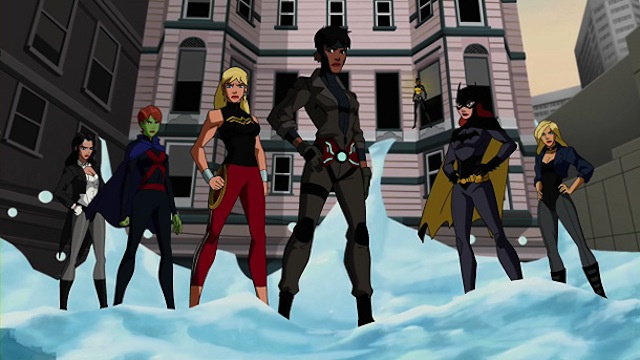As we’ve talked about on the podcast, Sam and I have both been reading Katherine Isbister’s How Games Move Us, but while she’s been open chatty, I’ve been reserving my thoughts. For me, there’s a lot to wrestle with, because the book directly engages with a lot of ideas I’ve been mulling over for the last couple of years, and while I’m still not ready to talk about much of it, I do want to address a particular point Isbister makes in the opening pages of the text—in fact, she begins on the first page of the introduction:
To have a rich and meangingful discussion about how games fit into our lives, how they work on us as human beings, we need to get beyond shadowboxing with a monolithic notion of “games,” and delve into the elements that make up the game experience in all its facets. We would never lump Hollywood action films, Sundance winners, and nature documentaries together when discussing the impact of film. We see these as different kinds of works, using different techniques, for different audiences, to different ends… Yet we still talk about games as if they’re all the same” (xv-xvi)
Here, before even getting into the meat of the text, Isbister frames something that I’ve been dancing around in much of my own research and writing: the reason why much of games theory doesn’t quite seem, to me, to fit the expanding notion of games. Back when I had just played The Beginner’s Guide, this was my struggle: it didn’t fit any real notion of a game I had, either notions I personally held, or the theory I had been studying. The Beginner’s Guide was something else entirely, and here Isbister cuts right into the center of the issue: I couldn’t fit this game that didn’t feel like a game to me because, despite all the categories and genres and hybrids we create, we still tend to speak as though all games are essentially the same, and they’re not. Of course they’re not.
After all, what does Call of Duty have in common with Gone Home? How can we even begin to talk about these two approaches to gaming as though they’re in the same realm? But this is an obvious divide; how about something a little closer, like Metal Gear Solid V and Deux Ex: Mankind Divided? Both fit players into a similar scenario: one special (enhanced) hero undertakes a series of missions for a particular end, and players may choose a more straightforward, brutal approach, or they can operate with stealth, hiding, investigating, working in and around the challenges. But Mankind Divided and MGSV are very different, mechanically, and in terms of perspective; the first-person perspective of the former seems to highlight a lack of immersion, rather than its opposite, particularly when handling bodies—they slip and slide, separate from the player-character’s hands. Grab one and it sort of floats and flops along with you. In MGSV, though, you pick up a body and stash it, lest you are discovered, and remember where you put them, too, because anyone knocked out will be waking up soon to sound an alarm. If you’re not immersed fully in the action, your game is likely to be a lot harder, because every action matters. Sloppy play can lead to death. Both touch on real-world concerns; Mankind Divided plays on racial tensions with its futuristic look at human/Aug divides, while MGSV brings soldier vulnerability to the fore, with attempted rape, with child soldiers, with the manipulation of foot soldiers by their superiors. Both are flawed in this, but they strive to connect with something real.
 But are they the same? I’d say no; I’d argue Mankind Divided is the game equivalent of a summer popcorn flick; it’s pretty but surface, ultimately forgettable. MGSV is much more ambitious, striving for layers and grand statements, which makes its mistakes more noticeable at times, but it’s anything but forgettable. These differences, for me, are reflected in the play; both are coherent, in that way, to adopt Lana Polansky’s term. Metal Gear Solid V wants the player to be fully present; Mankind Divided wants the player to do some game shit, as you do in games, and trying to talk about these two games as though they are built the same way, or have he same goals, is a disservice to players and creators both. This doesn’t mean there’s no overlap, but it does mean there are other considerations. See also: Final Fantasy XI or XV and World of Warcraft; see also The Elder Scrolls and The Witcher. The commonalities are basic; it’s the differences that are much more fascinating.
But are they the same? I’d say no; I’d argue Mankind Divided is the game equivalent of a summer popcorn flick; it’s pretty but surface, ultimately forgettable. MGSV is much more ambitious, striving for layers and grand statements, which makes its mistakes more noticeable at times, but it’s anything but forgettable. These differences, for me, are reflected in the play; both are coherent, in that way, to adopt Lana Polansky’s term. Metal Gear Solid V wants the player to be fully present; Mankind Divided wants the player to do some game shit, as you do in games, and trying to talk about these two games as though they are built the same way, or have he same goals, is a disservice to players and creators both. This doesn’t mean there’s no overlap, but it does mean there are other considerations. See also: Final Fantasy XI or XV and World of Warcraft; see also The Elder Scrolls and The Witcher. The commonalities are basic; it’s the differences that are much more fascinating.
But back to the notion of games like Gone Home, like Her Story, like Depression Quest: these are games that seek to do specific things, and they are worlds different from the Metal Gears and the Calls of Duty, and so it is perfectly sensible that they would seek to achieve those aims with wildly different mechanics and approaches. The Call of Duty franchise is all about what a player can do, with guns anyway, while Depression Quest’s weight comes from what the player can’t do: really anything at all, at times, because that’s its central conceit. Without restricting player action, without visibly blocking certain choices, the game’s message becomes impossible to transmit.
But we’ve grown up playing games that are about what we can do, like Call of Duty, like every Mario, every Zelda, every find-the-thing, save-the-day title out there. We hit buttons and something happens. That’s a game, and that’s much of games theory: it’s based in patterns and scaffolding. But to use Isbister’s example of film, while we know all video games are coded, just as all movies are filmed, what happens after that very basic shared foundation can be vastly and wildly different. There’s room for it. What’s more, we need it. We need films that go backwards and games that don’t let us act, and we need popcorn flicks and rough and tumble action games, but as Isbister says, until we begin talking about this broad spectrum of possibility in ways that separate, categorize, and create sense, we’re wasting our time on the wrong conversations, and that doesn’t get us anywhere at all.




